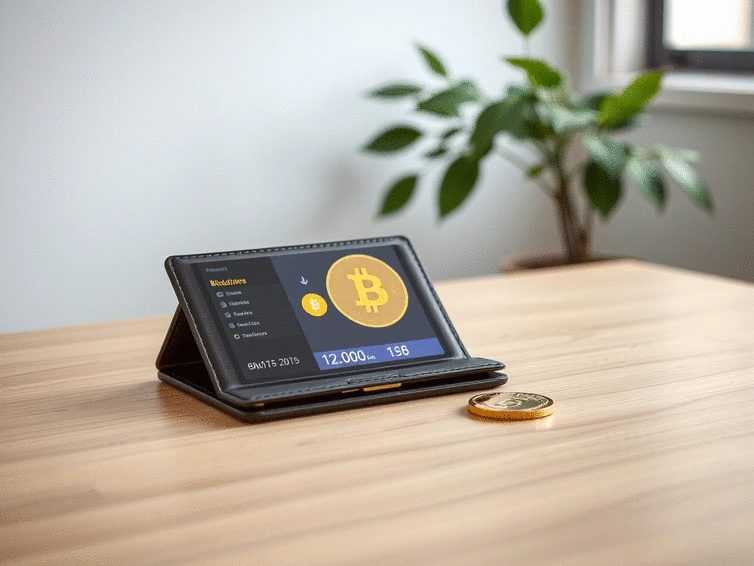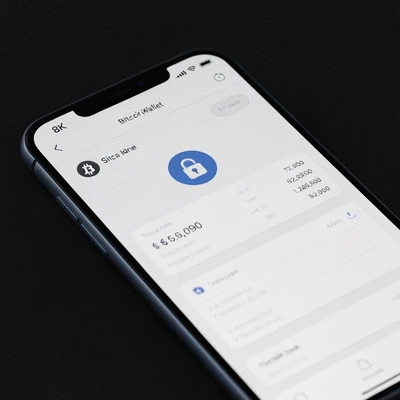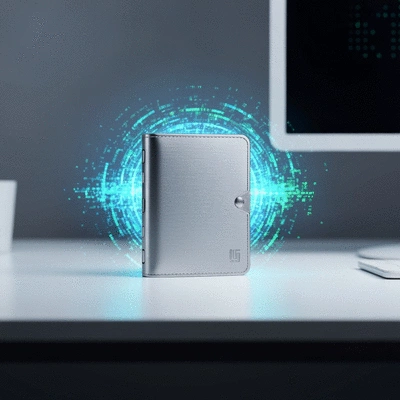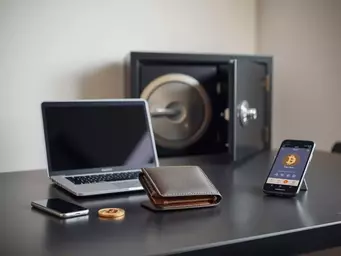Public Key
Like a Bank Account Number
- ✓ Shareable for Payments
- ✓ Used to Receive Bitcoins
- ✓ Visible on Blockchain

What if your wallet could not only hold cash but also digital gold? In the realm of cryptocurrency, understanding how to manage your Bitcoin securely is nothing short of essential. Dive into the world of Bitcoin wallets and unlock the keys to your financial future.
Understanding the distinction between public and private keys is fundamental to Bitcoin wallet security. This visual illustrates their function and importance.
Like a Bank Account Number
Like a PIN for Your Funds
Have you ever found yourself puzzled by the term Bitcoin wallet? You're not alone! Many newcomers to the world of cryptocurrency feel the same way. A Bitcoin wallet is essentially a digital tool that allows you to store and manage your Bitcoins. Think of it as a virtual version of a physical wallet, but instead of cash, you’re handling digital currency.
In this section, we'll dive into what a Bitcoin wallet is, its crucial role in transactions, and the security aspects you should be aware of. By the end, you'll have a solid understanding of what a wallet does and why it's essential for anyone looking to navigate the exciting landscape of Bitcoin.

A Bitcoin wallet can be defined as a software program that stores your private and public keys. It enables you to send and receive Bitcoins while tracking your balance. To clarify, here are some key points to keep in mind:
Understanding these components is vital for anyone looking to engage with Bitcoin. They ensure that you can safely transact and maintain control over your assets.
The primary role of a Bitcoin wallet is to facilitate transactions. When you want to send Bitcoins to someone, your wallet generates a digital signature using your private key. This signature proves that you are the rightful owner of the Bitcoins being sent. Here are some core functions that a Bitcoin wallet provides:
These functions make your wallet a crucial part of interacting with the Bitcoin network. Without a wallet, you wouldn't be able to send or receive digital currency!
Security is paramount when dealing with cryptocurrency, and this is where public and private keys come into play. Your public key allows others to send you Bitcoins, while your private key is your secret to accessing those funds. If someone gets a hold of your private key, they can control your Bitcoin, so safeguarding it is critical.
Let’s break down some essential points about key management:
By understanding and managing these keys effectively, you enhance your wallet's security and protect your assets in the volatile world of Bitcoin. For more detailed guidance on securing your digital assets, the SEC provides valuable insights into cryptocurrencies and associated risks, while the FDIC has clarified processes for banks engaging with crypto-related activities, which can offer a broader understanding of the regulatory landscape affecting your wallet's security.
Now that we have a grasp on what a Bitcoin wallet is and its essential functions, let’s explore the different types available. Each wallet type serves distinct purposes and comes with its own advantages and disadvantages.
Understanding the nuances of each wallet can aid you in making informed choices tailored to your needs. Let's take a closer look!
When choosing a Bitcoin wallet, consider using a combination of wallet types to enhance security and convenience. For example, use a hardware wallet for long-term storage of your Bitcoins and a mobile wallet for daily transactions. This way, you can enjoy the benefits of both security and accessibility.
A Bitcoin wallet is a digital tool, typically a software program, that stores your public and private keys, allowing you to send, receive, and manage your Bitcoins. It's like a virtual bank account for your digital currency.
A public key is like your bank account number; you can share it with others to receive Bitcoin payments. A private key is like your PIN; it must be kept secret as it grants access to your funds and allows you to send Bitcoins.
There are various types, including hot wallets (online, software, mobile), which are connected to the internet, and cold wallets (hardware, paper), which are offline. Each type offers different levels of security and convenience.
To secure your Bitcoin wallet, always keep your private key secret, use strong and unique passwords, enable two-factor authentication, and regularly back up your wallet. Consider using a hardware wallet for significant holdings.
Choosing the right wallet is crucial because it directly impacts the security and accessibility of your digital assets. An informed choice ensures your investments are protected and easily manageable according to your transaction habits and investment strategy.
When diving into the world of Bitcoin, one of the most crucial decisions you'll face is selecting the right wallet. A Bitcoin wallet is not just a storage space; it’s your gateway to securely managing your digital assets. Understanding the different types of wallets, their functionalities, and their security features can help you make an informed choice that aligns with your needs.
To recap, here are some important points to consider:
By keeping these points in mind, you'll be better equipped to navigate the complexities of Bitcoin wallets effectively.

The right Bitcoin wallet can make a world of difference in your cryptocurrency journey. Think of it as the lock to your digital treasure chest. Selecting the appropriate wallet ensures that your investments are not only secure but also easily accessible when you need them. As someone who has explored various wallets in my own journey, I can attest that making an informed choice drastically reduces anxiety during transactions!
Consider the following when making your decision:
Remember, a well-chosen wallet will support you in achieving your financial goals in the ever-evolving world of cryptocurrency.
As you embark on your cryptocurrency journey, continuous learning is key! I highly recommend checking out the following resources to deepen your understanding of Bitcoin and wallets:
Diving into these resources will enhance your knowledge and confidence in managing your Bitcoin wallet. Additionally, for understanding your tax obligations related to digital assets, the IRS provides comprehensive guidance on digital asset taxation.
Being part of the cryptocurrency community requires a commitment to safe practices and ongoing education. Always stay updated on security measures, trends, and best practices in the crypto space. Frequenting forums, engaging with experts, and following reputable news sources can keep you informed.
Additionally, never hesitate to reach out for guidance! Whether you’re unsure about wallet features or need help with transactions, there are plenty of communities ready to assist. Remember, we're all in this together as we navigate the exciting world of cryptocurrency!
Here is a quick recap of the important points discussed in the article:
Bitcoin Wallets in DeFi and NFTs

As the world of cryptocurrency rapidly evolves, understanding Bitcoin wallets is more crucial than e
Secure Your Bitcoin Investments Today

What if I told you that securing your Bitcoin investment could be as crucial as choosing the right a
Bitcoin Mining's Role in Security

What if I told you that Bitcoin mining is not just about creating new coins but is a cornerstone of
Bitcoin Wallets in DeFi and NFTs
Secure Your Bitcoin Investments Today
Bitcoin Mining's Role in Security
Recovering Your Lost Bitcoin Keys
The Importance of Bitcoin Today